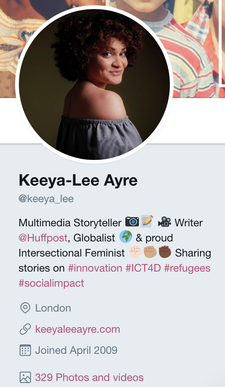 A few months ago, I changed my Twitter bio to include that I am a “proud Intersectional Feminist ” and I’ve since received a number of comments and questions about what that means. To be honest, I didn’t know the concept was so left-of-field to my follower base, nor did I realise how few people seem to think about the implications of social oppression. Intersectionality represents the idea that multiple identities intersect to create an entirety of experience that is uniquely composed and can’t be reduced or understood in any of its single parts. Basically I accept the theory that social inequality is multidimensional, and that there are multiple axes of oppression that any individual or group can experience such as racism, homophobia, fatphobia, sexism, classism, xenophobia and other forms of bigotry. If you’re a lesbian woman for example, you are likely to have very different experiences if you are white or black, cis or trans, rich or poor, thin or fat. Being aware of these nuances is important so we are able to more thoroughly consider the ways that systemic injustice is created and maintained within society. As for most of my social-justice-minded allies, this isn’t some kind of PC bandwagon I jumped on as an adult: it’s the consequence of witnessing many difficult things I disagreed with throughout life, realizing that most of us in one way or another participate in the perpetuation of oppressive social norms. When I was about eight or nine years old, I remember watching an episode of Maury on television. For those of you lucky enough to have no idea who Maury Povich is, it was basically the worst kind of tv programming. I remember the show pretty vividly even though I was so young watching it, because essentially they trucked out people perceived as violating social norms onto a stage in front of a live studio audience, and shamed and interrogated them. Queer people, trans people, sexually liberal people, single mothers, black families, little people, you name it. The paternity testing segments stick out the most in my memory. Maury would interview a couple on the stage, a woman usually holding a baby or letting a toddler crawl around while ignoring or swearing at someone she was once intimate with, while the guy either swore back or called her a liar (or much worse). Maury would [correction: according to the internet, still does – this crap is still on!] rile up the crowd, while holding the results of the paternity test in an envelope. He’d then slowly read the paper and shout into the microphone “you are the father!” in which case the woman would look triumphant while the man despaired, or “you are not the father!” while the man would prance around pumping his fists while the crowd called a single mother a slut. In one of these paternity testing segments, I remember a particularly confronting intersectional situation. A black man who was a little person, was verbally battling with a ‘fat’ white woman with a visible disability. They were hurling all kinds of abuse at each other, because she claimed he was the father of her child and he refused to believe it. My young brain couldn’t deal with everything that was going on, because I was trying to understand how difficult both of their situations must be while also despising them for being so vile to one another. This has been burned in my mind since, and is one of the reasons I’ve always thought about the complex nature of multidimensional identity. For full disclosure: I’ve tried to find this segment on the internet for years and I can’t, so it may be a false memory, but I remember it clear as day. Flash forward a decade, and a similarly confronting situation unfolded, this time right in front of me, with people I knew very well. In my very-early-20s I worked at a refugee assistance charity with people I greatly admired. Many were intelligent and passionate people who could be earning much more money in other industries but made sacrifices for a cause they believed in. I held them in high esteem, and for a while, thought they were morally and ethically infallible. As we didn’t have much income, being a funding-dependent charity, we had an office space in the back of the car park of a Christian organisation. We shared that office building with a program that supported teenage mothers. Over time, I heard horrible comments from my co-workers and even clients, about the women in that program. They were described as ‘filthy’, ‘poor’ women with ‘no class’ by some of my colleagues. Likewise, the women in the program and their social workers were often horrified when they came in contact with the refugees, and made many complaints about them being in the building. Then came the day when I met a refugee girl who was in the program, and I was acutely aware of how difficult her situation must be, with scorn and judgement from all sides. I found this very difficult to process because I had assumed that people who were empathetic to one cause, and aware of it, would likewise be empathetic to the other. But unfortunately, that was naïve of me. I’ve seen this pattern replicated time and time again in many different contexts, and struggle to understand how people can value one aspect of oppression above others. So, for now, all I can think to do is to continue to proudly wave my intersectional feminist flag and keep trying to have these conversations whenever I can. This is the tenth in a series of 52 Memoirs I will be posting weekly until April 2018. Look out for new posts every Wednesday!
In April I spent just under two weeks in my hometown, Western Australia, visiting my Mum in my childhood home. It was my first time back in nearly two years. When my husband Alex and I packed up and left (indefinitely) to pursue our careers abroad, I left dozens of boxes of my clothes, shoes, bags and accessories in the spare bedroom at her house. Being the champion that my Mum is, she doesn't mind being a pseudo-storage facility for a future version of me. The things that we kept all felt completely essential at the time. When Alex and I moved out of our house (our ‘dream’ future rebuild project on a great block of land, that we have a mortgage on, and tenants currently in) and sorted what we had to scrap from what we would need in the future – we worked based on the idea of what we would need when we were in our 30s and ‘established’. We were planning for hypothetical versions of ourselves, and we thought we were being extremely selective. Some of the ‘bigger’ items we kept made sense. We’d be stupid, insane, or both, not to keep our best kitchen appliances, the gorgeous artworks we’d been given as wedding gifts and our ridiculously expensive mattress (that we only slept on for a few months before deciding to move). But a lot of other items made the cut too, things that weren’t important enough to shove into the four suitcases we were able to bring with us on the plane when we first left for New York... but we figured we'd definitely want to collect all of it later. Those items reveal how much we’ve both changed more than any deliberate self-reflection was able to - I am a wildly (or conservatively?) different person today than I was even in 2015. The itty-bitty rainbow jumpsuit with a deep plunging neckline that I’d thought was fierce now looked like something a tween pop star would be photographed in on TMZ, the sequinned blouse I’d picked up in a charity shop in San Francisco looked at best fit to wear to an 80s themed party, and the baggy leather pants I had kept in my closet for the day they’d finally work almost seemed like a practical joke. In Perth, with all of our space, a minimalist wardrobe felt like something that I could only dream to have on Pinterest. Having to live in a tiny room in London has made me a true functionalist by necessity. My wardrobe currently consists of beautiful staples – structured, comfortable pieces that all work together in a palette, effortlessly blend from work to play, and fit in about 1.5 metres of closet space. By being forced to have less – I’ve learned to be selective, to understand my own style and to value what I have so much more. Tiny steps towards feeling like that 'established' version of myself, I guess. So before we left for our long-haul journey back to London via Jakarta, while loading a car-load of things I once thought reflected my identity into the charity donation bin, I felt an overwhelming sense of catharsis. By knowing what I’ll never wear again, I’m able to appreciate exactly who I am right now. This is the ninth in a series of 52 Memoirs I will be posting weekly until April 2018. Look out for new posts every Wednesday!
Something happened today that was like a total déjà vu moment. Well no, not really, since it wasn’t déjà vu – it was a moment almost entirely replicating itself. I was sitting down with my boss, an intelligent, thoughtful and passionate woman who I admire and who always fully supports me professionally and creatively (aka ideal feminist boss) and after discussing a bunch of ongoing projects, we ended up talking for a moment about life. She told me that she’d described me to her husband in the past as someone who does a lot of amazing things and has a lot of passion and energy. Obviously, that was lovely to hear. But then she told me that very recently, she’d decided that I do “too much” and maybe it wasn’t a good thing.
She then asked me if I finished all of the projects I started (yes) and how that worked out for me over time. This was all framed in a friendly way, and I took it well. She then commented that maybe that’s ‘just how I am’ if it really does work for me. Interestingly though, this isn’t the first time I’ve heard similar feedback in the same context. About four years ago, my then-boss, a woman I also greatly admired – a strong, intelligent, refugee lawyer – told me almost the identical thing. That I seem so passionate and full of energy, always pursuing projects, but that it was all “too much” and there almost was no way I could actually be completing everything to a high standard. The first time I heard this feedback, I took it as being actionable. I didn’t see a problem with me, I saw it as a problem of perception, and of other people’s imagined limitations. I had no reason to doubt my own capacity because I always ensured that I delivered on every commitment I made, and had excellent references attesting to that. But as a takeaway, I decided to slim down my resume significantly. While other people might think adding a volunteering commitment of 10 hours per week for three years was a great thing to showcase, in my case it was one of many to be cut. This is because with all of my work and volunteering commitments, it put me at over 100 hours per week of output. That’s exactly how much time I was logging across different endeavours and supporting projects: but people like my boss (and surely others) looked on with disbelief. After I began to talk about only half of the experience I had, I started to gain more success when applying for other opportunities like leadership roles, other positions and events. I essentially noticed a direct correlation between making it seem like I’d done less, and being recognised and rewarded more. I fully understand that for many people multiple full-time loads wouldn’t be manageable (but as I’ve pointed out before, I had dire circumstances spurring me on) but it seems quite ridiculous for an employer to assume it literally isn’t possible. Speaking from experience: it is. Over one six-month period I was running a non-profit organisation, studying a full time honours course load while writing a thesis, running a small migration law business, spending two hours a week tutoring refugee children, planning my wedding, and a permanent overseas move – then decided I was so busy I might as well start my Masters degree full time concurrently since it really couldn’t get any worse. Compared to that version of myself I’m doing very little now, and I’m still getting the “too much” line! So I’m not going to adapt to the feedback again, I’m just going to note that it’s a persistent issue, and keep moving forward. Next time you feel tempted to dismiss a CV that reads like mine did (before the slim down), or to raise an eyebrow at a seemingly ‘impossible’ timeline or schedule – remember that you might be pushing away high-performing individuals. If someone really does have that much energy (and their references attest to it) and they want to swing some of it your way, you shouldn’t pass up on the opportunity to funnel it into your work. Seize those people and challenge them, then let them surprise and amaze you. The world of work is changing fast and who knows what skills and talents will be needed in 5, 10 or 20 years. The more energetic and passionate people you can attract to your cause, the better! This is the eighth in a series of 52 Memoirs I will be posting weekly until April 2018. Look out for new posts every Wednesday! I have spent the last week in Sydney for the EU-Australia Leadership Forum. I was fortunate enough to have been selected for the Emerging Leaders cohort, along with 24 other Australian and 25 European delegates. It was an intense and rewarding programme. We had stimulating conversations about international trade, security, technology, innovation and education, among many other areas of discussion. After spending our Saturday developing policy recommendations, we were able to present these to the Senior Leaders gathered from across Europe and Australia from diverse sectors including government, media, business and healthcare. We covered everything from fake news to cyber attacks, medical research to social cohesion, and Brexit to space exploration. One of the recommendations coming from the education team, mostly comprised of Europeans, was for Australia’s education curriculums (each state/territory has their own system) to reincorporate mandatory language learning. They highlighted the significance of both European and Asian languages for Australia, which I whole heartedly agree with. As many of our European partners understand: foreign languages are critical to more meaningfully understanding other cultures. When you only know English, you are bound to receiving an Anglo-centric view of the world. Australian news outlets are heavily slanted to British and American perspectives, for the simple reason that the vast majority of our journalists can’t directly access foreign sources. The diverse perspectives reported in foreign media outlets, often never translated, are largely out of our reach. After this recommendation was presented to the Senior Leaders, one older Australian man grabbed the microphone to respond. I’m not sure who he was or where he was from, but his statement was pretty shocking to most in the room. He basically said that everyone in the world is ‘desperate’ to learn English, some pay thousands to come to Australia to study it, and when we (Australians) travel everyone wants to speak English to us, so language learning is defunct. He surmised that everyone should accept that ‘reality’ and move on. I think my jaw literally dropped at that moment. There was horror in the eyes of Europeans around the room, and of Australians who didn’t want this to be the impression given of our country. But I also understand that it’s a ‘reality’ in the minds of many Australians and other Anglophones, who genuinely believe that English is the only language needed in the modern, globalised world. I ended up speaking to a number of people about this over the rest of the day, including a European Member of Parliament who also happens to be a linguist. I tried my best to articulate what I feel explains the Australian perspective. For many Australians who natively speak English, speaking a foreign language seems like an impossible task only mastered by geniuses and those who somehow have a gift. To many Europeans, Africans and Asians (plus most non-native English speakers actually) that probably seems ridiculous. But it’s how many of us feel. We will often look on in admiration and wonderment when we see people speaking two, three, or four languages, because it feels so far out of our own reach. I felt this way too, before I first learned a foreign language to a halfway decent level. It happened entirely by accident too. While I lived in Malawi when I was eighteen, I shared a house with another Australian girl and three Dutch men who often spoke to each other in Dutch rather than swapping to English, though they could speak it. This (impolite and unsolicited) immersion was a blessing in disguise, because in my rage to break through the exclusion barrier I somehow ended up understanding most of the language, then I studied it properly for a while later and spent a few months in the Netherlands. After a six month period I could understand most conversations and reply. For me that was phenomenal because it was something I thought was impossible for me. But something clicked in my brain and then I got it. It isn’t impossible at all, but to learn a language quickly and effectively, immersion and regular usage is crucial. Many Australians rarely have, or use, the opportunity to immerse themselves when learning a new language. Retrospectively, I have no animosity for these Dutch people forcing me into their language bubble because without that experience, I wouldn’t have had the confidence to keep pushing on — I still would likely assume foreign languages are impossible to acquire. It wasn’t that I hadn’t experienced, or studied, other languages though. In lower school I’d studied Bahasa Indonesia/Malay (which strangely I largely retained, and use when travelling to the region), in high school I’d studied Japanese (and can still read and write hiragana, katakana and many kanji), and sought my own tutoring in Arabic. I later studied French, Spanish, German, Russian and Mandarin — but only sporadically and not to a high level. Even now I’m usually too afraid of making mistakes to properly try, which is a serious error on my end and I realise that now. When I was in Ukraine last month, I was able to converse somewhat in Russian only once I’d had a few drinks and realised how grateful people were that I even bothered or showed an interest. It allowed me to have warm and productive conversations with people, and may be part of why I enjoyed my visit to the country so much.
This is now my takeaway. Our abilities don’t have to be perfect. If we don’t try, we’ll never get anywhere. So I’ve stopped making excuses for myself. How long will my French, which I prioritise because I use it when working in Africa, sit at upper intermediate without crossing the threshold to proper advanced proficiency? Well, no more making excuses. I’ve now set my phone and computer to French, forcing all of my settings, options, apps and even Google into French. I don’t know a word? Tough, I’m going to have to figure it out. I’ve set up all of my news notifications to come via Le Monde and I’ll be listening to a French daily news podcast. French fluency is squarely within my reach, but what about the effort I’d previously put into everything else? Well, I’m going to try something out for a few months: a rotating daily schedule where I spend at least 30 minutes practising each other language. Mondays: Arabic. Tuesdays: Japanese. Wednesdays: Mandarin. Thursdays: Dutch. Fridays: German. Saturdays: Spanish. Sundays: Malay. I’m not going to become fluent in any of these languages using this soft-touch method, and I don’t expect to be. But it will help to preserve my pre-existing ability and will give me a greater level of empathy and cultural understanding, allow me to show people respect when I travel, and give me solid foundations for future learning. To any other native English speakers who think it’s ridiculous to even try to learn so many foreign languages (or even one), I challenge you to step out of your comfort zone and see what happens! This is the seventh in a series of 52 Memoirs I will be posting weekly until April 2018. Look out for new posts every Wednesday! |
AuthorMy name is Keeya-Lee Ayre, but I go by just Keeya if the context is casual. I'm American-born, Australian-raised, and living in Atlanta after a 2 year stint in London. I work in the humanitarian innovation / tech / social impact space. You can follow me on twitter here! Archives
February 2018
Categories |

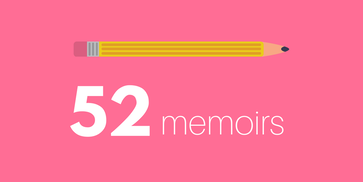

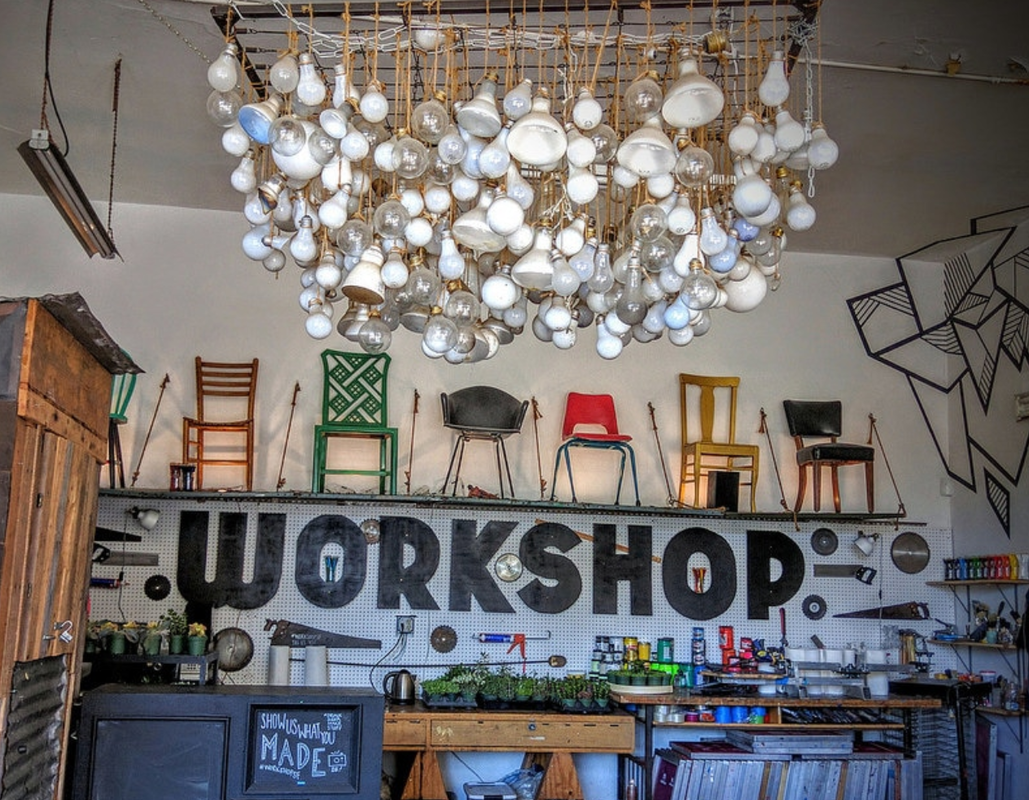
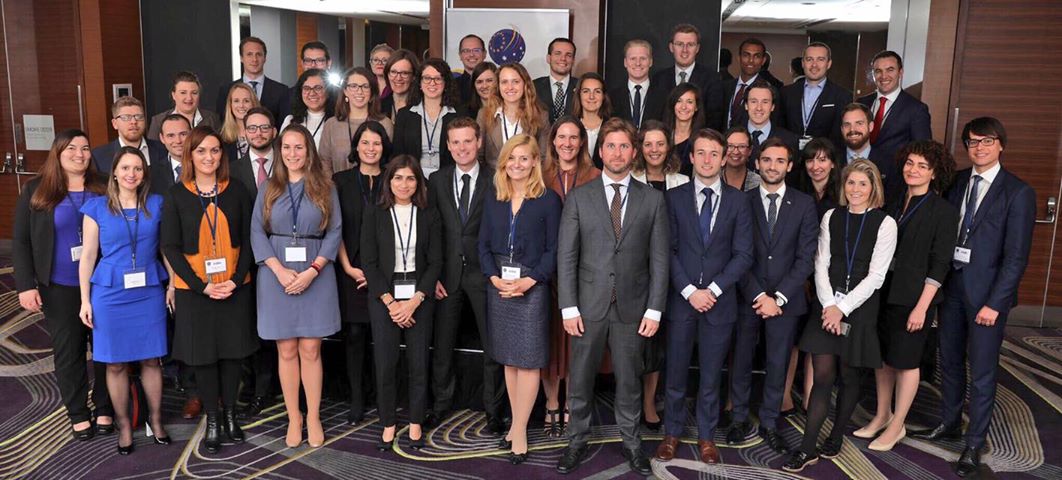
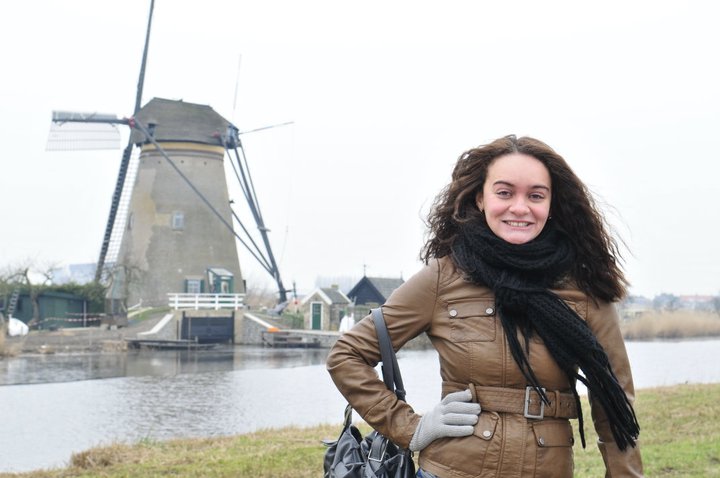
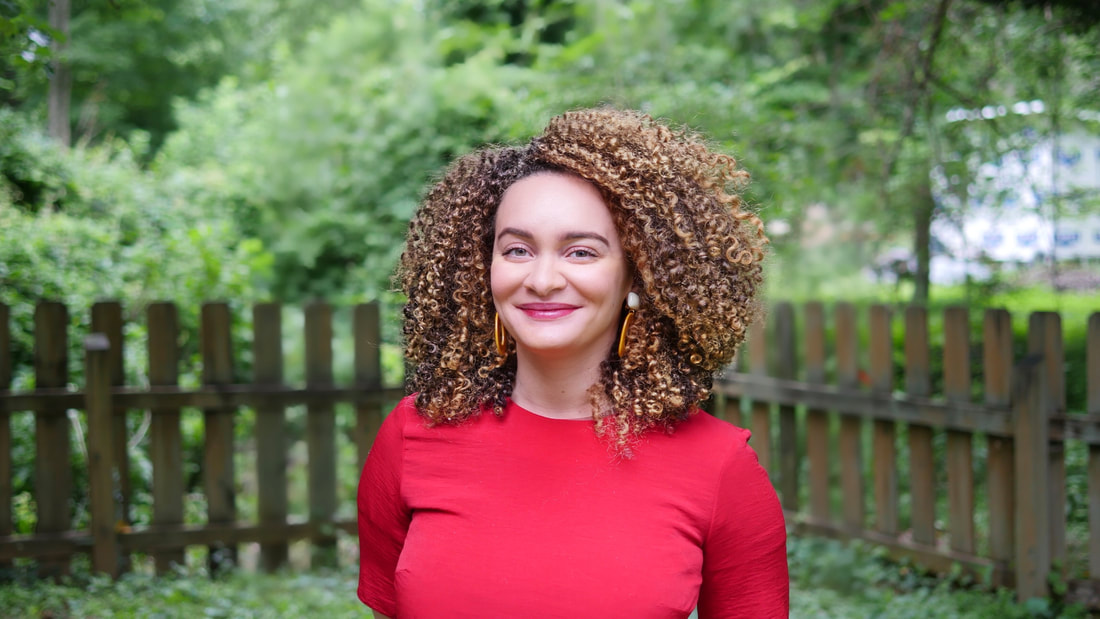
 RSS Feed
RSS Feed